This is the first in a short series of blog posts about the impact of the July 6 tariffs on SparkFun's business.
For SparkFun, the story of tariffs is a story about managing uncertainty, and doing everything we can to keep losses to a minimum as we transition from 1-5 percent to 25 percent tariffs on a significant number of our components. For us, it’s not a story about manufacturing in America, or the threat of recession, our current president or China’s increasing global influence.
Today, this story is about the short term: the three or six or nine months it will take for our business to fully transition to a massive increase on our cost of goods. Ultimately, we will have to pass the cost on to our customers in some way, shape or form, but the challenge we face is how much, when and who.
Getting an answer to the question of how much we should raise prices in response to the increase in our cost of goods is a big, hairy, intricate problem to solve with seemingly infinite dependencies. This blog post is about how SparkFun’s business works within an incredibly complex global market, and the huge task of managing the chain of uncertainty imposed by these new tariffs.
How Tariffs Work
Tariffs are applied by U.S. Customs and Border Protection agents at the ports where a shipment enters the United States. For us, that’s Denver International Airport. We get most of our shipments by air, since our orders are rarely the size and weight that would make ocean transport more cost efficient (thanks to all the small parts and pieces we order in small quantities). Each item falls into a certain classification as published in the U.S. International Trade Commission’s Harmonized Tariff Schedule, and their handy little search tool helps businesses like ours look up those classifications and determine the tariffs imposed on those goods.
When goods from suppliers arrive in port, the customs agent applies tariffs through our international shipper based on the classifications our suppliers list on the commercial invoice for that shipment. Our suppliers include the U.S. classification in the bill of lading based on their knowledge of U.S. tariff schedules. We pay tariffs through our international shipper when we are billed by them.
Occasionally, our suppliers don’t include the right classification for the goods they ship to us. When that happens, a customs agent calls our shipper, who then calls us at SparkFun to either verify the classification or provide a new one.
In an era when discrepancies in tariff charges between classifications amount to only 1 or 2 percent difference, we can afford to rely on our supplier’s judgment to classify goods properly. Now that the tariffs represent 25 percent on some goods, proper classification becomes a larger compliance and due diligence issue, as U.S. Customs and Border Protection increases the level of scrutiny to prevent companies from evading new tariff costs. For SparkFun, this means a significant increase in the time spent checking supplier classification of goods.
An additional uncertainty also lies in any discrepancies between how SparkFun anticipates its products will be classified and how our suppliers, shippers and customs agents classify them. This is more of a planning problem as we start to assess and project costs as a result of tariffs into the future.
Journey of the SparkFun Essential Sensor Kit
To illustrate the complexities of price increases based on an increase in our cost of goods, we'll outline the journey of the Essential Sensor Kit to the SparkFun storefront. If our task was to manage an increase in the tariff on a single product, we could simply match the increase in price to the increased cost of that product. However, our storefront SKUs fall into roughly three categories: board, kit and resale.
A board refers to the storefront products we manufacture in house from raw materials or components we’ve sourced from suppliers all over the world.
A kit refers to a storefront product that includes a collection of different parts bundled together, some we buy and some we build.
A resale product refers to component or product that we resell without any alteration. Most of our components and small parts are classified as resale, meaning that we order them from suppliers and then sell them on our storefront to our customers in the same form they came from suppliers, like LEDs.
Our Essential Sensor Kit includes a combination of boards and resale products, which makes it a great candidate to share how a single tariff, or a combination of multiple tariffs, can be a problem greatly amplified when managing a catalog like ours.
Complexity of Our Business
To top it all off, SparkFun isn’t just an e-commerce company. It’s also a supplier to other companies like Digi-Key, Mouser and Arrow, as well as a distributor of goods like Arduino, Raspberry Pi and micro:bit. We also manufacture goods in-house, and sell both online and to business partners like Intel, IBM or Microsoft. On top of that, we work closely with schools to stock their classrooms with low-cost, well-documented product that can be used to teach kids how to write code and build STEM skills.
So when we get calls from our distributors, or calls from school districts worried about price increases, we can’t provide a concrete answer right now because of the complexity of our supplier-distributor marketplace. We essentially have to manage two types of amplified cost impact:
- Product & Inventory: The increase in cost of boards and kits based on tariffs on individual goods.
- Supplier & Distributor: The increase in cost from domestic suppliers whose goods include components with a Chinese country of origin, and the price we have to pass along to our distributors.
Challenges
For many small businesses like SparkFun, the challenge of managing the impact of increased tariffs ultimately comes down to resources. Large companies in our market have the resources to deploy lobbyists and legal experts to either fight the tariffs or discover loopholes, as well as sophisticated supply chain management teams that work closely with suppliers to optimize their cost of goods.
We also have to consider the opportunity costs associated with managing this change. From a supply chain perspective, if we allocate our resources to determining the impact of tariffs, we’re not spending that time managing the challenges of the current driver shortage for ground shipping, or looking for ways to manage fuel surcharges. Perhaps most importantly, we’re taking resources away from managing supplier relationships, sourcing the most cost-competitive goods while preserving quality, and managing inventory and stock levels in an increasingly competitive and unpredictable supply chain landscape that results in more expensive goods (tariffs aside) and longer lead times. This impacts our customer when we can’t keep certain products in stock, or they cost more due to materials shortages or competition from larger companies that buy up the global supply.
All of the points of uncertainty explained above are only exacerbated when managing a catalog of 2,400 storefront SKUs, and the 4,000 small parts that go into those products, for customers as varied as the individual engineer, K12 teachers and university professors, corporate partners, and distributors.
Do we have concerns about how this will affect our customers? Absolutely. We’re concerned about teachers with limited budgets and about the way our competition will price the same product. We’re concerned with continuing to be a compelling and competitive option to engineers who use our products to prototype. We’re concerned about an already challenging pricing landscape in electronics, and we hope our customers are willing to take this journey with us and not let price variability in the near term prevent them from bringing their project ideas to life.
While we’re tempted to make sweeping statements about how this is good or bad for our business in the long term, the only thing we know is that in the short term, this certainly isn’t good for business. The problem for small businesses like SparkFun isn’t necessarily an increase in tariffs, it’s managing the uncertainty around it and not only keeping our losses to a minimum, but being able to confidently quantify those losses in the first place.
Ultimately, the answer we have to give about how tariffs are impacting our business and our customers is the same as the answer we are getting from our suppliers and partners: “We’re not sure. We’re still evaluating.”
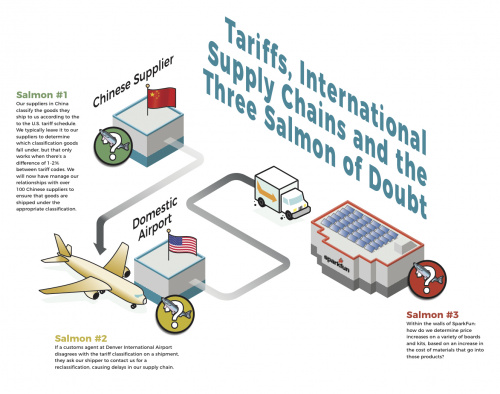
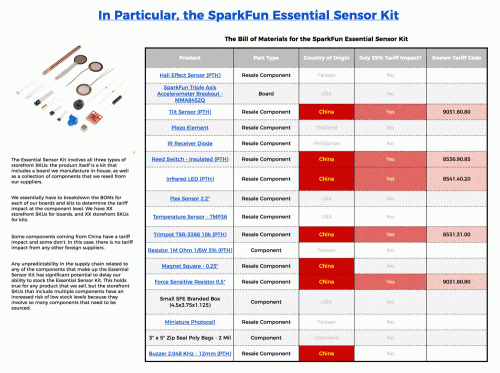
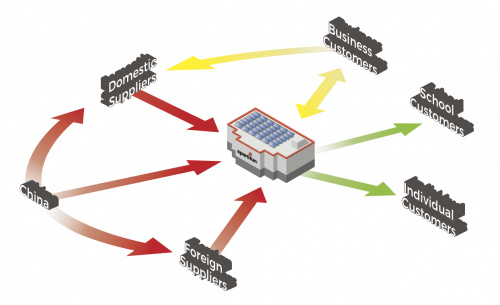


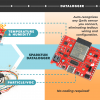


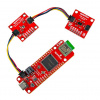
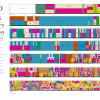
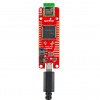
Thanks for the informative post, and taking the time to put it out there. I'd sort of wondered how the tariffs would impact some of my favorite part stores like Sparkfun, and I really didn't expect to see something like this. I know this sort of chaotic environment is not good for any business. Plus all the work done managing these things is really lost labor that could be doing more new exciting things for us, so that's a bummer too.
Thanks again guys.
Why would anyone ever buy from SparkFun? Chinese retailers with better products and lower prices are just a click away! SparkFun's so-called 'supply chain managers' and 'marketing specialists' are simply waste and overhead. Why should we care if the workforce lives in Boulder or Shanghai? Even with tariffs it's cheaper to buy direct from China because you eliminate the costs of the bloated and inefficient American workforce. As we have been taught, low costs trump all else. The SparkFun workers should give in to the superior Chinese and retrain for more exciting jobs.
I'm interested in a full-time job blog commenting. ;)
It's not good for the top 1% at all, but should theoretically be good for the other 99% of Americans since it will effectively lessen income inequality and give more power to American labor unions.
Ummm we are talking tariffs here, I'm not sure how we got to income equality and labor unions.
Best case scenario tariffs are supposed to bring production back to the US, right? That might be great for the American factory worker who lost his job to the Chinese (that is, until he loses it to a robot), but it's also going to make prices go up for everyone. Price increases disproportionally hurt those on the lower end of the income spectrum. Bezos doesn't care if a new car costs him 0.000000000125% of his net worth when it used to cost him 0.000000000100% but you'd better bet Joe America is going to lament 12.5% vs 10%.
I understand some people may have strong emotions on this subject, but there is a lot of research on this subject for those who wish to look it up.
Here is a report that found that simply negating the risk of Chinese tariffs in 2000 lead to a reduction of US manufacturing jobs and an increase of Chinese offshoring. http://www.freit.org/EIIT/2013/SubmittedPapers/Justin_R_Pierce72.pdf
This study reports the effects of offshoring, how it increases the gap between high and low skilled labor, and how it drives down the value of domestic low skilled labor. In summation: "low-tech offshoring exposes less qualified workers to international competition with countries where the cost of unskilled labor is comparably lower." (and yes, manufacturing is still considered low-tech, even if it's manufacturing circuit boards) http://www.ipe-berlin.org/fileadmin/downloads/Papers_and_Presentations/IPE_WP_71.pdf
I appreciate pointing to tons of research papers on the subject. But must admit the west has priced it's self out of the mass production market. Isn't competition the tenets of capitalism? Two years ago we watch carrier company folded up into Mexico as a result of uncompetitiveness due high wages, did the workers ask for pay cut to stay the relocation to Mexico? hell no. In any case it's going to take US manufacturing industry years to close the gap of pricing seen from the far east. 25% hike in tariffs will still not make same products cheaper if manufactured here in the US.
Some one must tell me if reopening the coal mines will guarantee jobs for same people whom voted the way they did? Cutting the nose to spite the face.
Labor rates in the U.S. are much higher than they are in China. So if magically electronic components that are currently made en masse in China start being made in the U.S., they will have to be more expensive to businesses and the consumers who use them.
I think it is preferable to have developing countries do the low-skilled, high volume work that we can then buy and use to create more complex, innovative solutions. Otherwise, we are paying more to go backwards.
Additionally Chinese retailers offer cheaper and better product than bloated middlemen (middlepersons?) like SparkFun. The delta in labor costs more than offsets tariffs, so there's no reason to not go direct to the source. Buying direct from China is also the right thing to do morally and socially: not racist, not nationalistic.
Chinese products are cheaper, but if you compare them to the more expensive American or European products, you will notice that they are not better. They use lesser quality materials and lower quality control. They do not respect patent or copyright laws and therefore, do not spend time or other resources on R&D. They may indeed be able to make a knockoff part for less than the person who spent months or years and thousands of dollars developing the part and by ignoring the patent are able to sell it for less. Essentially stealing intellectual property. There is nothing moral about buying stolen property. I do agree that tariffs are not good for the consumer. Intellectual theft stifles innovation which is also not good. Rather than tariffs, an absolute ban on anything that is copyright or patent theft would help the consumer most. Look at the dollar amounts attributed to tariffs compared to intellectual theft.
That Chinese product might be cheaper, but rarely is it better. We get tons of requests asking for help when someones Chinese knock off doesn't work properly, dies, or catches fire. Sometimes the Chinese product is good enough to get the job done, but when it's not, good luck getting them to support it or send you a replacement.
I see it the opposite way. As for "a lot of research", yes, I am familiar with the research, as well as the history of tariffs and their effects. However, the basic truth is simple: the main effect of tariffs is to increase prices, something that doesn't really affect the 1% but certainly affects the rest of us.
This sudden change is bad and might get even worse. Possibly companies such as SparkFun will find second sources for many products and reprice others to reduce losses. But the reduced demand (and it goes both ways in a trade war) is not good for business and some companies will be weakened or forced out of business. We could be starting a great worldwide recession.
It is a challenging world and I appreciate you being open and honest about it. Having spent 20 years working supply chain for Costco and Petco before becoming a teacher, I know the complexity of the systems you are working with and we had a staff of dozens to maintain it all. You do what you must, I'll continue to support you as you guys are the best game in town for these supplies.
I have taken a 3 day course at SFE (the old location) and spent time with the awesome SFE employees. While I loved my experience there and the interactions with all of the employees, the far left/extreme progressive element in Boulder and specifically at SFE was so readily apparent that as a moderate I felt uncomfortable. I am a politically and socially middle of the road on just about everything except my pride as an American and my defense of free speech. But this article is absolute illustration of how out of touch the far left progressive types are with the majority of Americans and the responses on this thread are a clear indication of that fact. I am not a Trump supporter and never will be, but the fact is that if we "let other places that our better making those components take care of it" we will become an economy of dry cleaners and lawn services. If we pen articles that say that calculating the new cost structures is too daunting for a company that does REALLY complicated stuff in order to make a political point, the fake news narrative the right tries to play seems more and more real.
"we will become an economy of dry cleaners and lawn services"....
No, we are an economy that runs the backbone of the internet. The US economy steered into a service economy in the 80's when we started buying from the Japanese electronics markets. If you want a prime example of "Buy American" Look at our defense and aerospace industries. Since I work in them I can tell you it's miserable. There are many companies that I could easily work with internationally but we have set up massive barriers in the efforts of "protecting national secrets".
The best example I can give you is the DFARS clause that mandates all materials used in DoD contracts be sourced from US manufacturers (with some convenient loopholes). This is easy if you are the bracket manufacturer that deals in raw materials all the time, but it's devastating to the screw manufacturer that has to compete world wide. They don't want to change their lines over to DFARS compliant materials. Some do, and that's why I pay anywhere from $2-500 per bolt in large qty and with 12-50wk lead times. And when they do I get to subsidize all the change over time and all the costs associated with bringing back a job they didn't want to do.
I can go on with examples, but this American exceptionalism in manufacturing has to end. The USA is still a technological powerhouse. We just moved up the economy ladder from manufacturing to design. Even manufactures here don't want to make clock radios, they want to make turbine compressors.
I think China doesn't play fair for a multitude of reasons. I was in Beijing for a month recently, they still have massive manufacturing centers around the city, but they are quickly shifting to the internet and service economy models. I witnessed first hand the tragic levels of pollution and disregard for worker safety. Vietnam and India are spinning up to be the China of the future. China is investing billions into Africa to create their own bread basket.
I'm sorry you felt uncomfortable at Sparkfun years ago. I used to work in the old building before I jumped back into aerospace. I don't know what was said or done to make you feel that you were unwelcome. But I do take issue with the statement you are making. You loved your experience, but then called them, out of touch far left progressive types? Here's what I am trying to unpack from this, we can all enjoy making things and tinkering with electronics. We can also be weird or normal in our own ways. Just because we all enjoy electronics, it doesn't force us to be associated in other interests. I love Sparkfun because it's one of the few genuine places. We can have a customer build a GPS guidance system for his tractor in Nebraska, and we can watch Nick Poole shove an RFID tag in his hand. To me that's awesome! If you feel genuinely uncomfortable, talk to people. I never had better debate fun times than I did at Sparkfun. Keep talking, you might be surprised to see how much we have in common. :)
I don't think the article was designed to make a political point at all; in fact, I think they go out of their way to be as neutral and factual as possible. If they were just shilling for the left they would have just said "prices are going to go up because of Trump" and ignored all the nuance and details that were included in the article.
The bias is veiled I think so as not to be polarizing and risk loss of business of current administration supporters IMO. Because the way I see it, an unbiased approach would be them simply stating in a banner on the web site "Prices on some products will increase at some point after July 6th due to increased tariffs on Chinese imports". That's a factual statement with no underlying bias.
But instead this article is an attempt to describe how this 25% tariff on chinese components is going to be bad for them and bad for their customers and to describe all of the challenges they need to overcome, losses to keep to a minimum, and how much turmoil exists because of these tariffs: -"managing uncertainty, and doing everything we can to keep losses to a minimum". -"the short term: the three or six or nine months it will take for our business to fully transition to a massive increase on our cost of goods." -Extreme difficulty and opportunity cost of projecting the increase of and calculating the cost of 2,400 storefront items based on 4000 components. -For the tariff increase: "the challenge we face is how much, when and who". -For the how much question the article states it to be "a big, hairy, intricate problem to solve with seemingly infinite dependencies." -"huge task of managing the chain of uncertainty imposed by these new tariffs"
Note the word "massive" used in the 2nd quote. The dictionary says "exceptionally large" with synonyms "huge, enormous, vast, immense, large, big, mighty, great, colossal, tremendous, prodigious, gigantic, gargantuan, mammoth, monstrous, monumental, giant, towering, elephantine, mountainous, titanic".
All this talk sounds pretty scary, huh? IOW, these "massive" increases are coming for you all and huge challenges for Sparkfun to navigate through this all. Takeaway is that this sucks. It's overblown verbiage so therefore I don't read it as "neutral" or "factual".
The hint of the bias is the use of the word "massive" to describe the tariff's effect on their cost of goods. That's a hint at what this article is really about along with all the other above quotes that are extreme in nature because their issue is with the Trump administration, not this tariff, because none of their major problems seem to be major problems.
The only other real problem other than the Trump tariffs seems to me to be that they don't have software that manages their sku's and what components go into them. They must instead, normally, just set a price when the sku first is created and rely on any component changes to be minor enough to not matter (with their markup being set high enough to not make a difference). But because of these tariffs they have to decide what might need to be repriced and how much since the kits are made up of only some things that are impacted.
The normal past insignificant price changes are now not in the single digit percents so they don't want to eat the 25% themselves but hmm, they think, it's not an entire 25% of the kit price because only some parts of some kit items have went up but if the original pricing was marked up a bunch maybe we could eat it all but wait, that would mean less profits for us for what the Donald did!!! Grrr!!! And because of the likely extreme hate toward him, that is really hard to swallow.
So, they are faced with losing some profits or spending lots of time/money on a system that they really should have that can accurately tell them the true cost of their sku's are and adjust them properly when their purchase price goes up. So it's a problem with their business, not the tariffs.
So my simple, personal answers to the seemingly difficult "challenges" of how much, when, and who would be 1) 25% 2) when you next order a batch of the higher priced components 3) huh, not sure what the question of "who" is about - I guess who pays for the increase and that could be the customer or you (since if your markup really is 200X maybe you feel you can eat some of the increase).
And the lamenting about the tariff process I just don't buy. ...about them having to spend a lot of time dealing with proper classification of components, I quote: "Occasionally, our suppliers don’t include the right classification for the goods they ship to us. When that happens, a customs agent calls our shipper, who then calls us at SparkFun to either verify the classification or provide a new one." Then later they say, "For SparkFun, this means a significant increase in the time spent checking supplier classification of goods."
So I am to believe that something that happens "occasionally" results in "significant increase in the time" spent?
This is just more of the same over the top crying as the "massive" increase where a 0.25 component now is massively increased to 0.31, a $1 item massively increased to $1.25. But customers buy several things I know, so $15 of stuff will now cost $18.75 (if all items are individual components where the applicable tariff applies).
So they tried to write this article politically neutral but their affiliation crept in. But I thank them for the article as it reveals important information to me that helps me understand Sparkfun (along with the other comments here) and is useful for my buying decisions. ;-)
Here's a closing quote: "The problem for small businesses like SparkFun isn’t necessarily an increase in tariffs, it’s managing the uncertainty around it and not only keeping our losses to a minimum, but being able to confidently quantify those losses in the first place."
So it is true - they don't have inventory software that can adjust prices of items when their input costs change so please bear with them and they attempt to indirectly blame it on tariffs.
I don't understand the point you are trying to make here. You claim that the real problem is due to poor product management on their end, but then make the claim that it is coming to light because many of their products are affected by the tariffs. You claim that the tariffs are insignificant but then examine who the cost will pass to, implying they are not insignificant. You claim this is venting about the administration and not the impetus tariffs put on your workflow, and I am trying to think of a way to word this that is not condescending, but if you think that way you must not have ever worked in an electronics design or manufacturing field. Ironically in a post I would call fairly nonbiased, your comment heat-seeking towards perceived political leanings is much more biased.
I love that SparkFun plans to write a WHOLE SERIES of 'nonpartisan' articles!
Back in the day I though of SparkFun as merely a reliable place to buy components. Now we're debating if SparkFun is deceitful, right here on their own educational website!
4D CONTENT MARKETING GENIUS! Can't wait to see how this series unfolds.
Every time I walk into Sparkfun's lobby to pickup parts at the front desk their staff inundates me with pro choice propaganda, shroud me in gay pride flags, shovel pounds of arugula down my throat... Seriously have you ever even been to Spark fun??? Is this the first time you've ventured to their website??? There's nothing biased about Sparkfun and this blog has no ulterior motive or purpose other than to inform their customers of price increases that they can't insulate them from.
Could you elaborate on the far left progressive ideals or bias in the article?
Stepping back, I'd like to say "Thank you" to Sparkfun. I sure you all gave this some thought about even if to post this, I appreciate the transparency.
Yet another self-righteous, virtue-signaling business wants to tarnish themselves by jumping into political debate and alienating customers.
So be it.
Sparkfun sure didn't seem to care when hundreds of thousands of American workers, in uncool blue-collar industries like manufacturing and agriculture, suffered heavily from the Chinese imposed tariffs on the goods they produced.
Hey, but Sparkfun had a good deal for a while, so f*** those workers and their families, as long as Sparkfun got theirs. Self-serving corporate greed at its worst.
Why does Sparkfun hate the American worker? Why does Sparkfun hate their conservative customers?
You idiots want to play politics, you can suffer the results.
Hey presnell, go stick it up your arse. They are being transparent, and explaining how this may impact their business. What the fuck is "virtue-signalling" anyway? That seems to be a made-up nonsense term. How is this at ALL political? They are talking about the impact of recent tariffs on their bottom line. Whether or not they agreed with the tariffs is irrelevant -- it WILL have an impact. Period. People are interested to know what that impact is. I can't believe how stupid some people are.
Can you provide some examples of how this article is politicized? Can you provide any examples of Sparkfun hating the American worker, or conservative customers?
Once-upon-a-time the US was championing globalisation asking the third world come on board. This was at a time the US had a large trade surplus and were all happy to the bank, now the manufacturing is on the other foot and suddenly globalisation now taste sore in our mouths, how sad. If the US wants to keep it's work force alive then it must match the competition elsewhere, and are you saying I owe it to patriotism to support American work force even if it's going to cost me more?
Tell me if this business model is taught at Harvard business school? I feel sad to note Sparkfun staff are idiots.
Yes the 25% tariffs will hurt, and will force you to increase prices, but I don't see why they would create some big new uncertainty or compliance task of the sort implied by this blog post. With 140 employees, SparkFun is not really a "small business", and I question whether you're making this more complicated than it needs to be. You already deal with constantly fluctuating prices of supplies. Why would a 25% tariff need to be handled any differently than a 25% increase in supply cost? They have the same net effect, so you can calculate the impact on your costs the same way, with the same approach to determining necessary price increases and making future sales projections. As for auditing your supplier's goods classifications, start with your highest dollar value purchases that were classified in a 25% tariff category, and double-check the classification, continuing with lower dollar value purchases until the potential savings is no longer worth the time invested.
I'm glad that America is finally standing up for fair trade. It's shameful how our traitor elite dismantled our once-thriving domestic electronics manufacturing industry and shipped it overseas.
Personally, the price of an "Made in America" product is typically too expensive; I'd have to be "elite" to afford it. I try to buy American as much as I can; however it's typically too expensive for my budget. If we just consider the labor costs, most products/companies cannot afford the customer demanded price. Let's take something simple: Hammers.
If I make a whiz-bang product in China it'd cost me $5.50 to make, I can sell it for $10 If I make the same whiz-bang product in USA it'd cost me $10 to make, I'd sell it for $10? Probably not
So I'd have to change the price. It's not a luxury tool, car or something else that it's highly desirable, it's a hammer. So my customers, some that buy these sweet hammers by the thousands choose a product that is just as functional, but a dollar cheaper. Are they obligated, ethically, morally or even patriotically to buy a product made in USA? I'd suggest not.
Placing tariffs on products from certain countries does not balance the scales or create new jobs. Middle America "middle class" is typically 50-60k per year wage. If you had to mine the metal, make the paint, pay for the lights to be on, pay for businesses to build your buildings, pay for insurance, taxes, trucks to drive my hammers around, people to staff the trucks, people to assemble my hammers, people to market the product, people to price and do competitive research, support health care and 401k for my employees.. How much would I have to charge for my hammers? Would you buy this very expensive hammer (by the thousands) if you were a retailer?
If you try to simplify something as complicated as the worlds largest economy and every agreement it has with even a single other country, you are going to have a bad time. Also, if you assume your obligations, ethics, morals, or patriotism is reflective of the majority of other Americans, well, you know what happens when you assume...
I'm not going to act like I know everything about international trade, agreements, and tariffs, but I do know how it has impacted my business (control boards). We tried to go to China for some manufacturing, and unlike the previous companies I worked for, we accounted for all the 'soft' costs. Sending engineers over there constantly, additional testing, higher warranty, establishing a ground presence to keep an eye on manufacturing, stolen IP, etc almost completely killed any savings we saw. So, except for the actual Asia specific product, we resisted the Chinese Siren Song and kept production domestic. I can guarantee that if we still had that original line in China today, that after these tariffs we would have brought it back. This would have created an immediate need for roughly 40 workers in our local community and an unknown number more to support, house, and feed the workers.
The delta between domestic and China production of a lot of things isn't as big as a lot of people think. The control board in my personal example was $27 in China and $32 domestic. $5 can be a lot, but again considering the soft costs, the fact that it goes into a product with over $100 of mechanical bits, and the end product retails for $300, the $5 wasn't worth it. Direct customer feedback also has told us that American Made is a very very strong selling point to them.
SFE Supply Chain Mgr here. Absolutely it's a complicated situation and problem to solve, which is what we're trying to high-lite. We manufacture all of our SFE Branded Boards and Kits right here in Colorado, and employ over 100 people in this building doing so. The challenge with the tariffs that have gone into effect to date is that they really hit the components, and not so much the finished products. So from your example, instead of it being a $27 to $32 comparison, it could suddenly become a $27 to $40 comparison if all of your base components were suddenly taking a hit (that's the extreme situation, but you see the challenge).
Thank you for your input and employing so many people in your community.
Just because I'm curious, I took your example of the Essential Sensor Kit and sourced the 5 tariff affected components on AliExpress. I have no idea what sort of agreements you have with your suppliers, what quantities you order, or how you assign CoDB (costs of doing business) to your parts, but you shouldn't be paying more than what I can get 20-50 of them shipped from China. SparkFun charges $12.75 for these components separately, and the whole kit (with non affected items) runs $39.95. I could order the same items for $3.47 from China, so after an additional 25% tariff, those components would be $4.34, so my estimation of the increase of your cost of the $39.95 kit would be $0.87. Hardly earth shattering.
You're totally right, we are talking about cents, occasionally dollars, when we're talking about price increases for customers. The issue isn't necessarily the amount of the potential price increase, it's how complex it is for us to calculate that number across 2400 products. For the Essential Sensor Kit, it is relatively straightforward (part of why we chose that product as an example), but it's not always that straightforward depending on the complexity of the supply chain behind that product. We also don't know how much other companies will price competing goods. We don't know how our domestic suppliers might increase prices on goods they originally source from China.
It takes time for us to wait on pricing impacts in our supply chain, and it takes time for us to see tariff costs come in on our shipping bills, and all that time ultimately costs us money. So when you add up all of those cents, they become hundreds of thousands of dollars.
Costs change all the time though, it isn't like this is some sort of new work.
Raw materials like oil, copper, all fluctuate (sometimes wildly) and even more constant materials like silicon and aluminum and always on the move.
Exchange rates and financial processing fees can double or half overnight, and they are never the same day to day.
Subsidies come and goo and need to be accounted for.
Business agreements expire and need to be renegotiated.
And yes, tariffs can be implemented and tariffs can be lifted.
This is all part of doing business, and acting like one change that you weren't necessarily planning on (you should have been) is going to cost your company "hundreds of thousands of dollars" either means you don't understand the change, or you aren't as 'small' of a business as you let on.
Jakezilla, as you alluded to, we attempt to negotiate long term pricing with our suppliers to keep our costs stable. Most of our costs from overhead to parts to professional fees are typically fairly stable. Our suppliers let us know when they are hit with raw material increases for example, and we figure out how to work that into our next long-term agreement. The tariffs happening at this moment are far from usual, as they were implemented over a very short period of time (announced in April, effective in July) and it's very hard to anticipate if this is going to be a permanent change, or change again in the next few months. While all of the factors you mentioned are part of doing business, in our 15 year history we've never been faced with this situation or the size of the impact. We're figuring it out just like everyone else. "Small Business" is certainly a relative term, I believe in the US it is under 250 employees which we fall under, by other definitions we may be "medium". We're definitely bigger than a mom and pop shop, but we are just 100 or so people in a single building working together. As Megan said the challenge is figuring out how take the increased cost to LED's, resistors, capacitors, sensors, connectors, switches, etc. and roll that through our entire catalog of products. We consume tens of thousands of those impacted components every week. Each one may be pennies, but when you add it up it is definitely in the Hundreds of Thousands of dollars over a year.
https://www.nytimes.com/politics/first-draft/2016/01/07/donald-trump-says-he-favors-big-tariffs-on-chinese-exports/
Donald Trump let it be known that he was targeting tariffs on Chinese exports long before he was even the GDP nominee. I know SparkFun is a young company, but this should have been a massive red flag to you (it was to us an all the other companies my friends work for). It is not a secret that electronics have been kept at an artificial low price on both sides of the US/China trade relationship, and gravy trains do not run forever.
Again, these tariffs apply to raw materials, not (most) completed products, not labor, not shipping, or exchange rates. Raw materials from China seem to be a small portion of what you sell, as evident by the example you chose. Just to recap, that was a 2% cost increase using the best numbers I could quickly find, it is likely closer to 1%.
If raw materials increased on home building by 25%, yes that would be a huge hit. Homes are typically 50% materials 50% labor, so finished homes would increase in cost 12.5% overnight. SparkFun's product seems at worse 10% tariff-able materials and 90% other, so at worse product price should increase should be 2.5%.
SparkFun's position on this is sounding more like positioning for future layoffs, offshore outsourcing, bad profit announcement, product removal, or something else.
It's funny how the people that don't own the businesses in the middle of this trade war seem to be able to tell those of us who are how we should handle it . I have no customers that are going to thank me for a price increase. Just as I won't thank my suppliers when they nail me with one,caused by the us. tariff's This trade war has placed those in the middle as walking on the edge of the blade.
I can't tell if this is a response to me or not. I do own a side business that is directly impacted by these tariffs and it has also been a very big impact at my day job. Luckily my side business is more for fun than making a lot of extra money so I'm just absorbing the costs for now, and my day job's final product's cost has a lot off labor and mechanical components in it. Again, my core complaint with articles like this and ones from other companies like MOOG is that they are acting like their product is going to instantly cost 25% more. I've illustrated that AT WORST a product on SparkFun.com is going to cost 2.5% more. Since posting that I've gone back and looked at the top 10 product in many of their categories and the vast majority of them have 0 tariff impacted parts (assuming they get the completed boards from a non-US source as their example indicates). They could do a blind 1% increase on MSRP and more than cover these tariffs, but instead they are doing a multi-part series in blog posts complaining about them.
Jkezilla , Again, a lot of advice from a person not in the driver's seat. There is always the option of letting Sparkfun have their opinion and accept their explanation, without assigning some type of profit based ulterior motive. Constantly telling them its not as bad as they make out. As a rule, Tariffs ARE bad for business at all levels.
"There is always the option of letting Sparkfun have their opinion and accept their explanation, without assigning some type of profit based ulterior motive."
"..accepting their explanation", yes, some people nod and say ok, I believe you but when the explanation doesn't pass muster it is a problem for some people (myself included). It has to make sense!
Also, I don't read Jakezilla's line of questioning as some attack on them trying to make a profit (ulterior motive that you stated) but instead he is using facts to question their statements as the facts don't add up is all with the dire message of the article.
I just told you about my business where I am in the drivers seat and supplied actual numbers backed by research. If this is just another online space to yell into the wind, by all means, carry on.
Exactly
Agreed, it's a complex issue. The tough part is we see an entire region (China in this case) that took actions to become a center for electronic manufacturing, and they excel at it. They built factories, supply chains, trained their people, etc. If we in the USA wanted to take steps to regain dominance in that or any specific field I'd welcome it, but we should do that by supporting businesses rather than placing tariffs.
An example of an entire industry move is the film industry (just one of the industries I've researched in the past). Where regions (example: Atlanta) made moves to try to bring some of that Hollywood "pie" to them. They saw economic possibilities, made it easier (process and tax wise) to produce in their area which provided jobs and growth in housing.
We in the USA should try to beat the competition on price, quality and environmental impact. We have some of the technical talent here in the USA to design chips, sadly as of today we do not have the technical manufacturing that China does (at scale) that beats them on price - which is why companies still get chips outside USA regardless of tariff. In the cases of tariffs companies pay more, customers pay to cover that cost.. And the money goes to the government?
Is it though? It seems places have a hard enough time finding workers. Why not let other places that our better making those components take care of it. They are making quality components that work well. If they were made here it would cost more for items that use those components, then you would complain that things cost too much.
It's upsetting how little you think of American manufacturing, unpatriotic even.
Lol what?
This was designed to be a dig, but due to the way comments are presented after replies, it fell flat.
I fully admit I wasn't sure which comment you were replying to!
I may have to ask for some dev time to reformat our blog commenting to better allow for digs to be associated with the comment they're meant for. It's probably going to be far down the list of priorities, but I want it on there.
This should be done by a Chinese programmer, who will work for less and do a better job than the lazy American. Cost savings will be passed to the deserving teachers and school children. I cry tears of rage when I think of how your salary contributes to their overinflated cost of goods. The children are so innocent and pure! Price fluctuations violate their civil rights. You the arrogant American can retrain for a more exciting job.
Cool.
LOL. Well said.
Lol what?
First I'll say ... I don't care about politics, I don't care about who the government thinks they are punishing. I go by empirical data. The answer is a lot of people that didn't do anything wrong are getting punished.. Secondly, My company makes wire harnesses and we use whatever terminals the customer spec's, Unfortunately, some of the more popular kinds aren't made in the United States, some in China, some in Europe. Also , the companies that make these terminals aren't likely to move their manufacturing lines to America. Anyway, just as Sparkfun is caught in the middle, so are other small companies. I really hope the government can declare a victory soon and get us out of the middle of this. Bottom, line when the government tariff's imported products, the tariffs are a tax meant to make it economically prohibitive to import the products for use in our country.If you have to use them, you will pay up to %100 more to do so. Many people wonder where the tariffs go that the government is collecting on imports, they go to the US Treasury. I really appreciate the efforts of the folks at Spark fun to try to keep things going smoothly. It's pretty hard.
Out of curiosity, has this resulted in you guys considering switching to more American suppliers? Is a 25% cost increase enough to cover the price difference between Chinese and American components?
That's definitely something we're considering, though in many of our recent conversations with suppliers they too face tariffs as they source many of their goods from China as well. We will have to see the price increases from domestic suppliers before knowing if a switch is cost effective. That's something we plan to address in upcoming blog posts on this topic.
Yeah this could take many, many years to play out and in the end, and after all the inflation it has caused, if we sit back and say, "well that didn't work out" it will have had a huge negative effect. I don't think a 25% tariff is an engineered or thoughtful approach to the trade or debt imbalance.
for sure GB
This will have knock on effects for other markets that Spark Fun supply. Australia has a 10% tax applied to all imports, this tax also includes freight costs to Australia. Add U.S. tariffs and this will drive up prices even further and possibley make many products unviable to market here. The only way around this is to drop ship products direct from country of manufacture outside of the U.S. to other countries. This would mean a major shift in product distribution channel planning.
BooHoo SparkFun, now you have to do some paperwork to exploit cheap workers in the slave-labor shops of China.
While $1,100 to $1,200 a month for an electronics factory worker isn't a ton of money for an American, that money does go a lot further in China, especially if you work for a business where a fully furnished apartment comes with the job.
Compare that to an American worker at federal minimum wage ($7.25, currently), who has to work 150+ hours a month to reach that level, and that's likely not with any better benefits than the Chinese factory worker.
Sparkfun why are you so reflexively anti-American? If you believe the Chinese system is better then you should move there and enjoy the benefits of authoritarian communism.
Are you really going to troll on an electronics website? 3 posts in and I can already see you are using this space to vent. What are you trying to accomplish?
Could you elaborate on the anti-American sentiment in the previous comment?
As opposed to authoritarian capitalism?
I've personally exchanged family photos and had lengthy conversations about the differences in our cultures, backgrounds, and working lives with a number of our international supplier reps. Yes, I'm keenly aware of how lucky we are to live and work in the US. But after having had the privilege to meet and correspond with Chinese people who are working hard to support their families and forge new lives for themselves, I've also seen firsthand the positive impacts trade can have abroad. There's a long, long, way to go for labor on both sides of the pond, and while I'm skeptical that there's some magic political panacea, maybe time will prove me wrong. We're not wringing our hands here crying "woe is us," but simply trying to do the best we can to prepare for the coming changes and keep our customers informed along the way.
You're right (I just googled that, haha). I'm a native East Coaster too--I guess in my arrogance I assumed that every large ocean is referred to as "the pond!" "The lake" sounds good to me, but only if we can also start referring to the Arctic as "the rink." ;-)
So, it may become more profitable to sell products manufactured by the actual patent holder with real quality control than to buy products manufactured from a country that sends a big 4Q to everybody who spends time and money on R&D? And the $4 knockoff part from intellectual theft might now cost $7 from the patent holder?
Please correct me if I missed it but, did you blog about lowering your prices due to the recent tax cuts?
We did not do a blog about the recent tax cuts for businesses- with the ambiguity around sales tax for ecommerce businesses in individual states we still have an incomplete view of the tax landscape for our business and its customer impact. As far as lowering prices are concerned (unrelated to promotions and discounting), we routinely do price reductions on our catalog based competitive products and pricing in our markets as well as any flexibility in supply-side pricing (though we rarely see goods getting cheaper from our suppliers). Just a few months ago, we started to actually notify our customers about those price reductions! Those notifications currently happen via social media posts, though not every price reduction is announced yet via social.
Hold on. Your business getting a business tax cut is one thing. The sales tax (payable by your customers) is a separate thing, no? They really aren't related relevant to Ken5's question I think. IOW, the sales tax topic isn't germain to his question. But you combine them in your answer, as if not yet knowing the answer related to the sales tax makes it difficult to write about the first. I see.
This low-value work could be better done by a Chinese. After all the Chinese understand electronics marketing better than you can ever know, and they work harder. Cost savings can be passed to deserving school children.
Thank you SparkFun. Great company, great article. I wonder about one aspect of your data table ... although things from Taiwan do not fall under the new 25% tariff I'm curious about how this plays out in real life. Will products from China find a way to move via Taiwan? Certainly such a huge tariff may make it worthwhile for some operations to move from China to Taiwan or elsewhere to make it appear so. Also does the long term affect China's view or Taiwan politically? The relationship between China and Taiwan is mysterious at best and a hot potato for sure.
I forgot to mention in my previous comments that with the example you posted there are incorrect numbers in the Tariff Code (HTSUS Subheading) column.
Do you get a refund on the tariffs if the destination of the goods is outside the USA?
Good question, that is referred to as a Duty Drawback, and while that is normally an option, in this case the US government has explicitly forbidden it. They implemented the 25% tariff under a special code that then gets added on to the normal tariff, and the special code is ineligible for Duty Drawback.
First, I sincerely appreciate the efforts of the folks at SparkFun.
Second, there's an issue that I haven't seen talked about here, and that's the recent court decision that ALL mail/web order businesses MUST collect (and pay) sales tax. IMHO, this is fine for the likes of Amazon or L.L.Bean, but the "really small guy" who makes maybe 50 kits to sell at, say, $100 each, this is assinine. It will take a huge toll on our future strength as a nation -- I know that I learned a LOT by buying and assembling such small-time kits. (Also, go read the history of Digi-Key, not to mention the history of SparkFun or Adafruit.)
Finally, there IS something we customers can do, and that is to remember all of this TrumpFlation from tariffs, as well as suposedly "more fair" taxation on Nov. 6... (If you would have had to file income tax under the Trump tax "cuts" before Nov. 6, it's doubtful that a single candidate with an "R" beside his/her name would be elected...)
We also have big concerns about the uncertain regulatory information in the U.S. regarding ecommerce sales tax. That's been almost as big a topic for us as have the tariffs, the only difference is that the tariffs is a much more immediate challenge to solve. We will likely be talking on the blog later this year about the ongoing ecommerce sales tax issue as we have more information about its impacts on SparkFun.
Thanks. We are all on the edge of our seats wondering if these new measures are going to crush us little guys and make it just not worth it anymore. I'm a one-person kit seller that collects and remits sales tax in California. Self employed income tax and state sales tax are more than enough of a pain already (time wise). I don't mind paying taxes to have a better city/state/country, but I certainly don't need the business of making kits to be any more complicated, I just want to go back to soldering.
Another legend chimes in: "New US Tariffs are Anti-Maker and Will Encourage Offshoring"
https://www.bunniestudios.com/blog/?p=5349
Bunnie the Chinese / legendary SJW, CNN and SparkFun all agree: tariffs bad!
Almost as if coordinated...
Meanwhile in America: 4.1% GDP growth - exports grew at 9.3% ...
Not only will this affect prices for hobbyists, but also for those looking into dipping their feet into the hobby. Popular kits like the Arduino pkg and littleBits could be more cost-prohibitive. I'm starting a weekly electronics workshop with a curious 7-y.o. and his mother is somewhat nervous about safety and how long he will be interested, so I'm taking the baby steps with components I have before we see what he really wants to play with and avoid spending more money than necessary. Parents without this advice could look at an electronic kit after the new tariff and not be interested in getting it nor interested in taking the time to look into smaller kits (Radio Shack would've been wonderful for checking out small kits).
No need to worry about hobbyists. These tariffs only effect imports on individual components and on large shipments (usually over $800). Since places like SparkFun already have a 20x to 100x markup on these small components, hopefully they can eat the .25x increase on these parts. Again:
Small components from China to large customers = TARIFF
Small components from Taiwan, Malaysia, India, etc etc to large customers = no tariff
Small components from anywhere to small customers = no tariff
Completed boards to customers large and small = no tariff
Thanks for the clearly stated FACTS. Appreciate it.
Do you really think this? With the extremely cheap prices of electronics you think a parent is going to look at a $12.50 kit and say, whew, if only that were $10 I might consider getting it for little Jimmy. But no, I just can't drop that kind of dough right now.
Oops, gotta a call coming in on my $800 smart phone with $40 data plan per month and it looks like my sister wants to have a $4 starbucks 5 miles across town so I gotta run over their in my SUV quick (using $3 in gas).